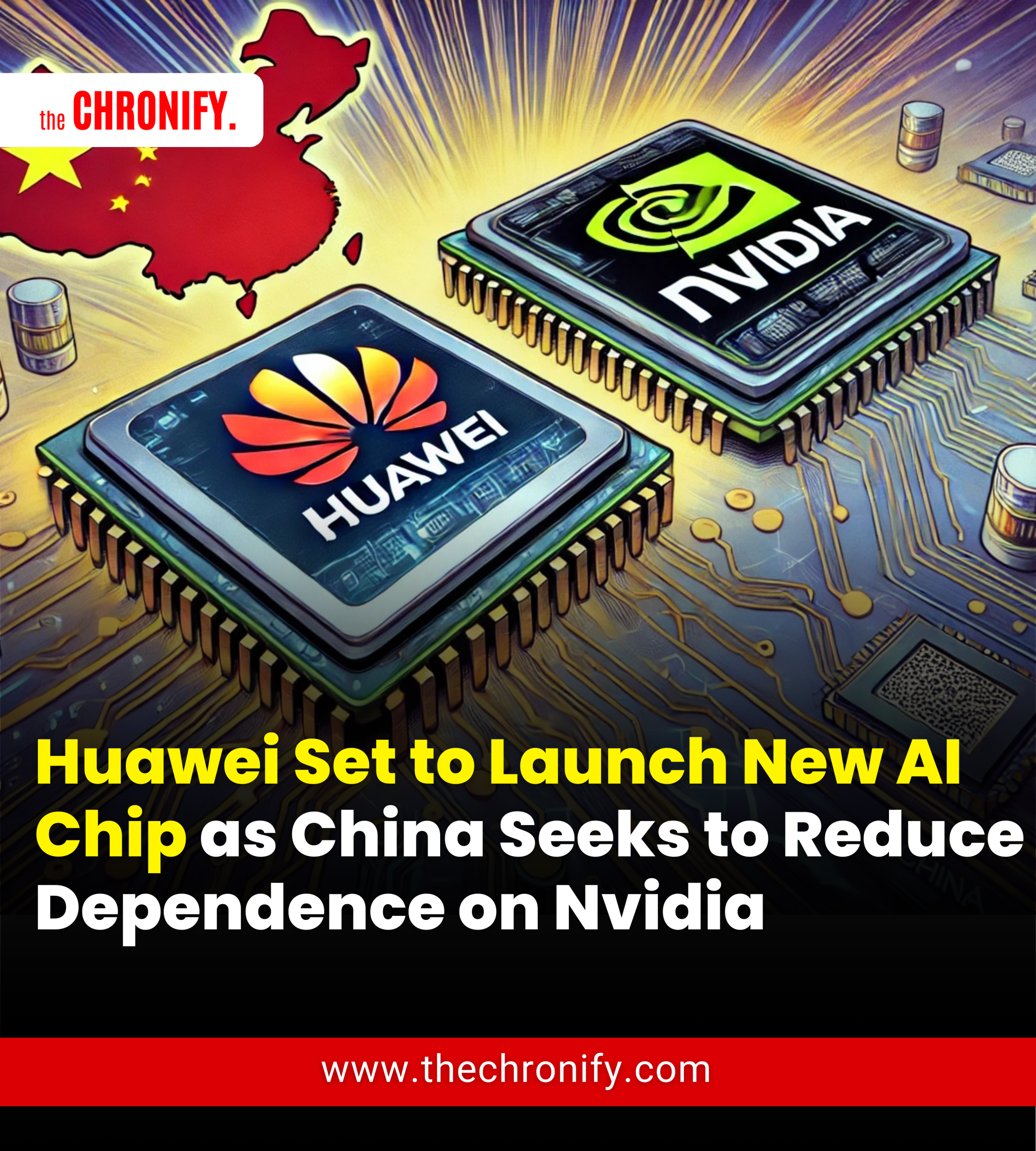Huawei Prepares to Mass-Ship New 910C AI Chip as China Seeks Nvidia Alternatives
SINGAPORE/BEIJING, April 21 — Huawei Technologies is gearing up to begin mass shipments of its new 910C artificial intelligence chip to Chinese customers as early as next month, according to sources familiar with the matter. Some deliveries have reportedly already begun.
This move comes at a crucial time for Chinese AI firms, which are seeking domestic alternatives after tighter U.S. export controls on Nvidia’s H20 chip, a key component previously available in China without restrictions. The Biden administration recently ruled that sales of the H20 now require an export licence.
Huawei’s 910C chip, a GPU, offers a major architectural advancement over previous models, combining two 910B processors through sophisticated integration methods. Sources say it achieves performance levels comparable to Nvidia’s H100 chip, offering double the computing power and memory capacity of its predecessor, along with improved support for varied AI workloads.
Although Huawei has declined to comment officially, industry experts expect the 910C to become a central player in China’s AI development ecosystem. The shift comes as Washington continues to tighten restrictions on Nvidia’s advanced products, such as the B200 and H100 chips, limiting their availability to China.
Huawei, along with emerging domestic rivals like Moore Threads and Iluvatar CoreX, is seizing the opportunity to replace Nvidia’s dominance in the Chinese AI hardware market. Analysts suggest that the latest U.S. curbs will make Huawei’s Ascend 910C the preferred choice for AI developers and inference deployment within China.
Late last year, Huawei distributed sample units of the 910C and began taking orders. While specifics around manufacturing remain unclear, sources indicate that China’s Semiconductor Manufacturing International Corporation (SMIC) is involved in producing key components using its 7nm N+2 process. However, yields remain relatively low. There are also reports linking some components to Taiwan’s TSMC via Chinese partner Sophgo, though Huawei denies using TSMC-made parts.
The growing demand for domestic AI hardware reflects China’s broader ambition to reduce reliance on foreign technology amid escalating U.S.-China tech tensions.

